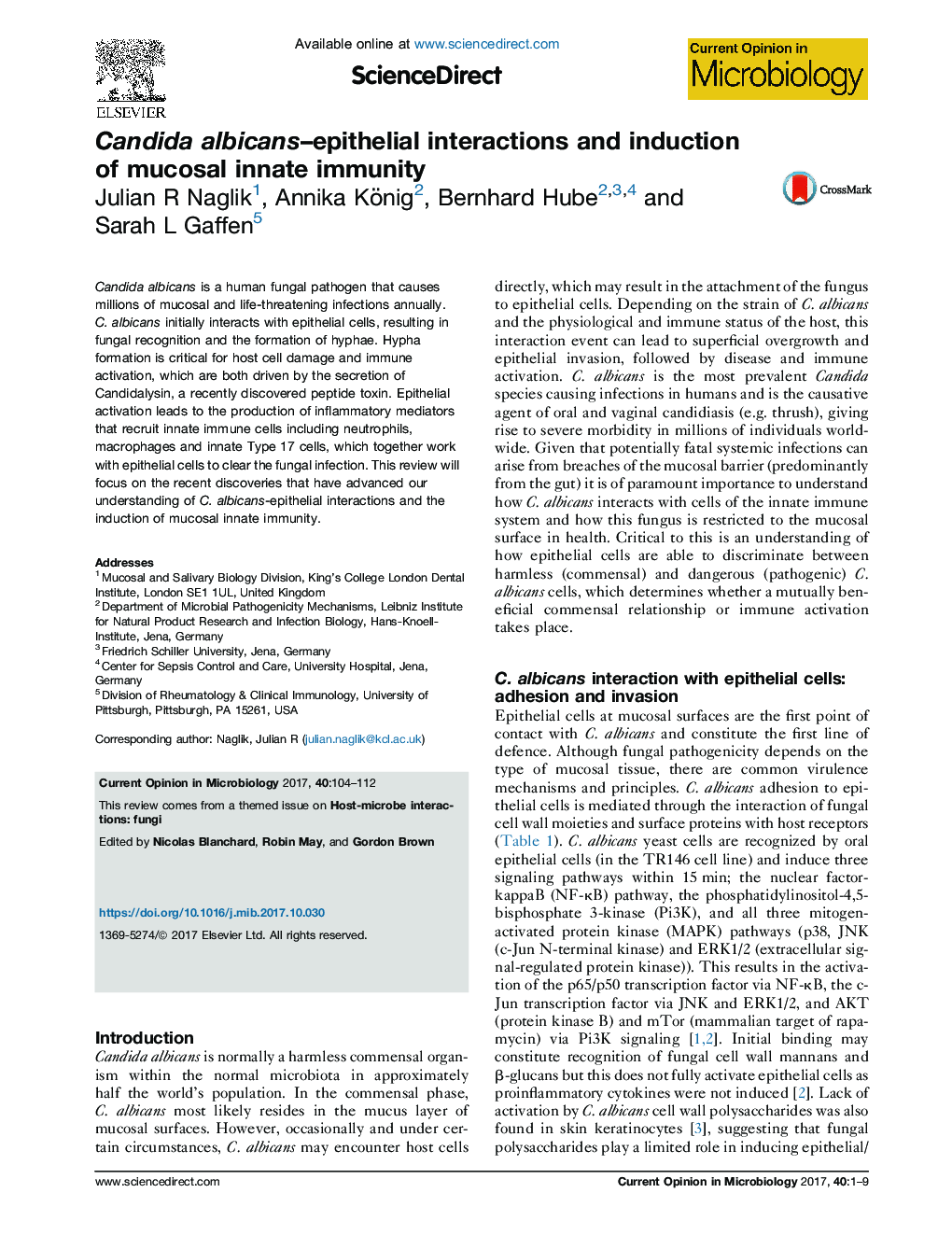| Article ID | Journal | Published Year | Pages | File Type |
|---|---|---|---|---|
| 8745117 | Current Opinion in Microbiology | 2017 | 9 Pages |
Abstract
Candida albicans is a human fungal pathogen that causes millions of mucosal and life-threatening infections annually. C. albicans initially interacts with epithelial cells, resulting in fungal recognition and the formation of hyphae. Hypha formation is critical for host cell damage and immune activation, which are both driven by the secretion of Candidalysin, a recently discovered peptide toxin. Epithelial activation leads to the production of inflammatory mediators that recruit innate immune cells including neutrophils, macrophages and innate Type 17 cells, which together work with epithelial cells to clear the fungal infection. This review will focus on the recent discoveries that have advanced our understanding of C. albicans-epithelial interactions and the induction of mucosal innate immunity.
Related Topics
Life Sciences
Immunology and Microbiology
Microbiology
Authors
Julian R Naglik, Annika König, Bernhard Hube, Sarah L Gaffen,
